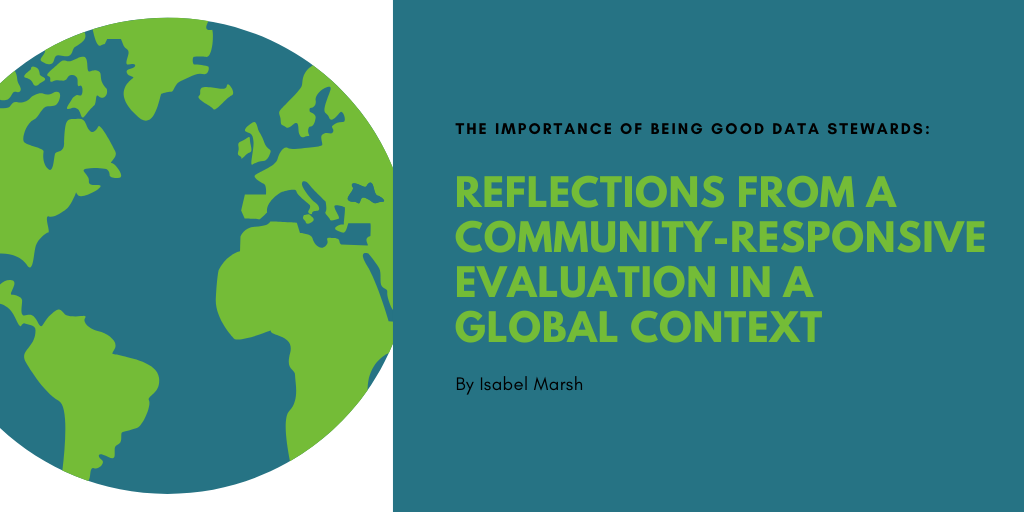
 Imagine a team of 35 people conducting 95 data collection events in three countries and three different languages. How can they stay on the same page while still being responsive to communities’ perspectives?
Imagine a team of 35 people conducting 95 data collection events in three countries and three different languages. How can they stay on the same page while still being responsive to communities’ perspectives?
We recently completed a sustainability assessment of three former U.S. Department of Agriculture (USDA) Food for Progress projects. Our clients for this project were the University of Minnesota Stakman-Borlaug Center (SBC) and the USDA Foreign Agricultural Service. We provided them with our evaluation and data collection expertise. We wanted to answer questions like, what existing conditions are needed for sustainability? What factors of the project’s design and implementation lead to sustainability? And, to what extent have project activities and impact continued?
USDA will use learnings from this evaluation to re-design its programming, including agriculture interventions that ultimately lead to expanded markets, increased trade, and overall improved outcomes for farmers in developing countries. We were successful in this endeavor thanks to the use of some of our most powerful tools:
- The Improve Group’s Community-Responsive ApproachSM
- Strong data management practices
Through our community-responsive approach, we engaged project stakeholders across Guatemala, Sri Lanka, and Benin during the design of the project. Their early engagement was key to building relationships and gaining trust. Stakeholder input helped us make the research meaningful to communities while minimizing the extractive nature of our work. We honored stakeholders’ contributions by sharing them across teams and ensuring our work abided by their recommendations.
For example, per stakeholder recommendation, we used engaging and inclusive data collection methods like Image Grouping. This approach serves diverse types of people who might express ideas more visually or who have different literacy levels. Our workshops also included a reflection space. Participants reflected on gains and learnings from projects and how these can be part of their future.
Similarly, we brought expertise in large-scale data management to the team. We created and shared guidebooks on how to responsibly perform data management. These guidebooks were the cohesive thread across the three-country teams. They enabled us to convey the importance of different data management practices, such as naming conventions, storage practices, logistics of events, and collection of demographic data. Our data management practices also enabled a smooth, cohesive analysis process across the three sites, which ensured we uplifted the voices of participating communities.
This project reaffirmed the value of engaging stakeholders early in a project because that led to reliable data and better relationships. It also demonstrated the importance of rigorous data management for complex studies, because our teams were able to work cohesively regardless of their location and backgrounds. In all, the combination of responsiveness to community perspective and a systematic approach to data management was key to our success.
